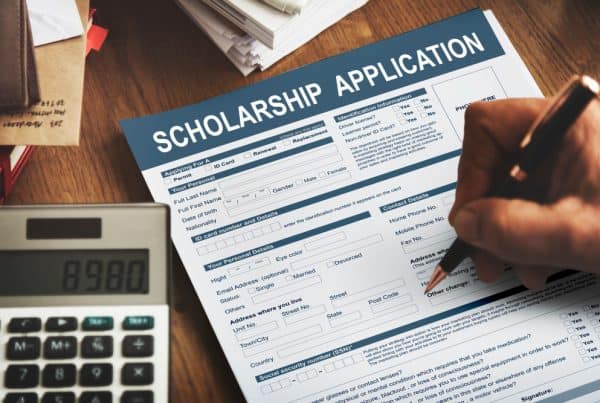Canada’s stable economy, availability of jobs, and the government’s immigration-friendly policies are vital drivers of immigration growth. A wide range of amenities and opportunities has made the country a desirable destination for people around the globe. It resulted in its rise in inhabitants, and the government has established new regulations to regulate this. If you would like to immigrate to Canada, it will be advised to get the expertise of an express entry lawyer to make the process hassle-free. According to a recent announcement, the new NOC system will change how Canada IRCC evaluates work experience.
The program was designed to attract skilled labor and accelerate Immigration by having a pool of eligible candidates undergo a selection process. The NOC lists different occupations in which people can work in Canada and the qualifications needed to work in those industries. The changes have eliminated some occupations from the list. This is significant because being eligible for Express Entry makes it more difficult for these individuals to immigrate to Canada without going through employer-specific Immigration.
The Canadian government will implement the 2021 National Occupational Classification (NOC) system on November 16, 2022. The new NOC amendments will impact Canada’s immigration programs, including Express Entry.
Why has the TEER system replaced the skill-type model?
The four-category “skill level” structure that governs NOC 2021 has undergone a significant revision and was replaced with a new six-category system. The new algorithm controls the level of Training, Education, Experience, and Responsibilities (TEER) necessary to enter each occupation.
Due to two main factors, the TEER system has largely replaced the skill type model. First, the TEER system aims to define the education and work experience required to work in a given occupation. TEER implementation aims to increase stakeholders’ understanding of the skills necessary for each occupation. The skill type model also artificially divides jobs into low- and high-skilled categories.
What professions will be impacted in November 2022?
Based on revised educational and experience criteria, the 16 previously disqualified jobs listed below will be qualified for Express Entry commencing November 16. Express Entry will also be open to a sizable number of previously eligible positions for the NOC system.
The professions that will be included in the NOC 2022 are mentioned below:
- Workers who assemble and inspect aircraft
- Drivers of public transportation, subway employees, and others
- Prison service personnel
- Dental assistants and lab technicians
- Teacher assistants in elementary and secondary schools
- Cosmeticians, electrologists, and other relevant professions
- Operators of heavy equipment
- Regulatory and law enforcement personnel
- Patient service representatives, attendants, and nurse aides
- Other service providers and repairers
- Administrators of payroll
- Technical and other assistants in pharmacies
- Pest exterminators and fumigators
- Residential and commercial service providers and installers
- Bailiffs and sheriffs
- Truck drivers
The following three professions were excluded from the list:
- Other artists
- Recreation, sports, and fitness instructors and program directors
- Furriers, milliners, dressmakers, and tailors
Guidelines for Express Entry Applicants
Applicants can find comprehensive instructions on the IRCC website. You must update your profile following the new list on or before November 16, 2022. This information is crucial for candidates who have submitted their profiles but have not yet received an Invitation to Apply (ITA).
To do this, you must search on the NOC 2021 list before updating your profile with your TEER Category and five-digit occupational code.
Revised Express Entry Eligibility for NOC 2021
| Eligibility | Canadian Experience Course | Federal Skilled Worker Initiative | Federal Skilled Trades Program |
| English or French proficiency | CLB 7 for TEER 0 or TEER 1 employment; CLB 5 for TEER 2 or TEER 3 Employment | CLB 7 | CLB 4 for reading and writing, whereas CLB 5 is for speaking and listening |
| Work Experience Type/Level | Canadian workforce in one or more of the following NOC TEER Categories: TEER 0, TEER 1, TEER 2, or TEER 3. | Employment in a profession falls under one of the following NOC TEER Categories: TEER 0, TEER 1, TEER 2, or TEER 3. | TEER 2 or TEER 3 key group work experience in a skilled trade. |
| Years of Employment | In the last three years, there has been one year in Canada (either combination of full-time or part-time work). | One year of continuous service within the last ten years (combination of part-time, full-time, or more than one job in your primary occupation). | Two years in the preceding five (either combination of full-time or part-time work) |
| Job Opportunity | Not Necessary | Although it is unnecessary, a legitimate job offer can increase your selection criteria (FSW) score. | A legitimate offer of full-time employment lasting at least one year or a Canadian provincial, territorial, or federal authority’s certificate of qualification in that skilled trade |
| Education | Not Necessary | Secondary schooling is necessary. You can earn more selection criteria (FSW) points for your postsecondary education. | Not Necessary |
Candidates must choose the best-fitting NOC code when submitting their Canadian economic immigration program applications. A person should consider how closely the primary responsibilities of the NOC code match the responsibilities they carry out in their job when selecting a code.
Want to ease out your hassles?
Migrating to a new country can often be difficult, yet it can open many new opportunities in your life. Every prospective citizen goes through robust due diligence checks before their application is accepted, and Ronen Kurzfeld, Immigration Lawyer Toronto, helps you get on track. With our hands-on approach, Ronen guides its clients through each process step. We assist, whether it be with your work permit or Business Immigration Canada. If your application is turned down, we know your legal rights and are prepared to act. Contact us by emailing at ronen@immigrationway.com or calling 647-249-7976 to know more about our services.





